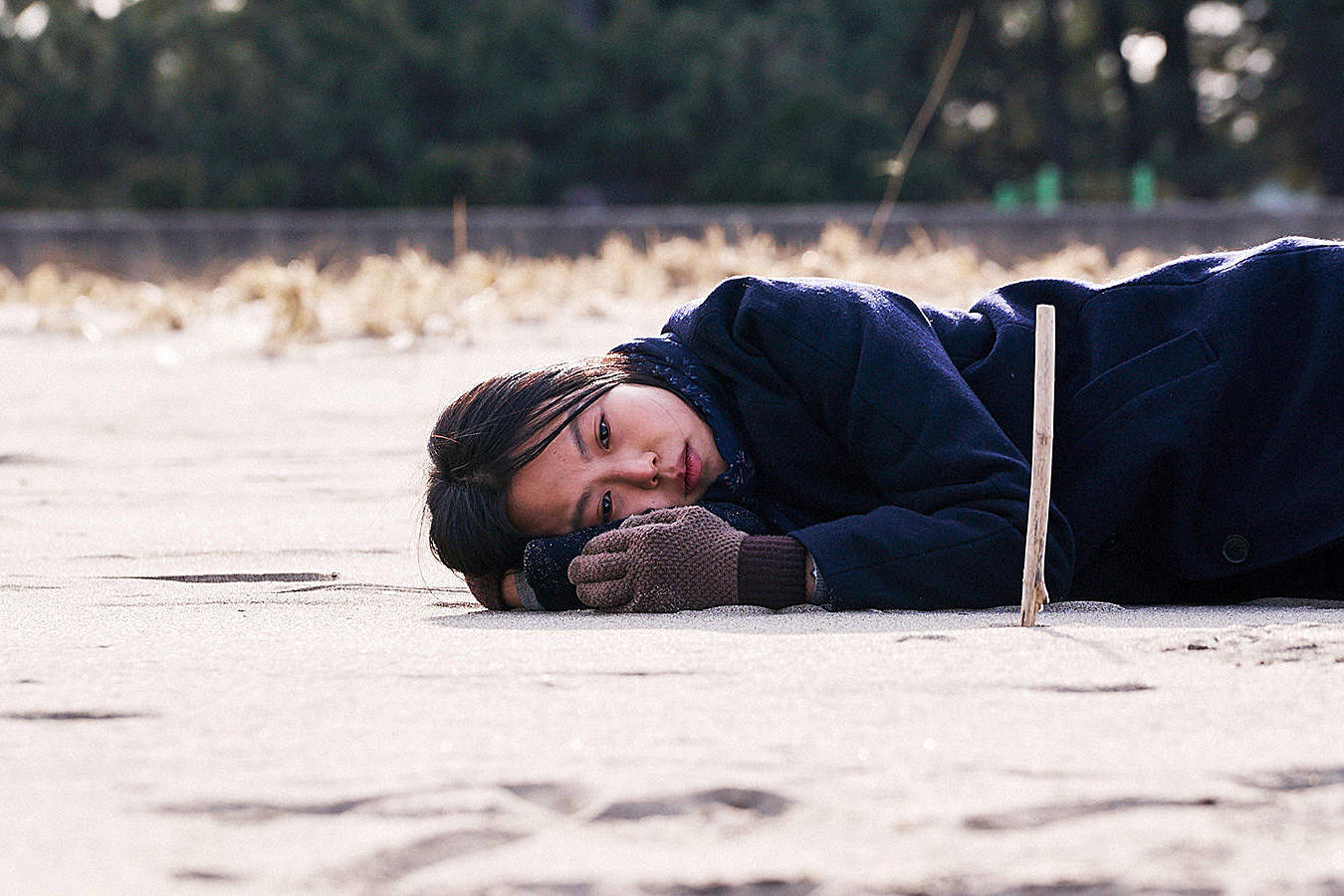One thing to like about the films of the prolific South Korean director Hong Sang-soo is how grounded they are in cluttered, everyday reality. (Maybe your reality isn’t cluttered, but I’m working with what I see around me, so this looks to me like realism.) People in his movies are always going for soup and coffee and leaving beer cans sitting around, to the point where this seems like the actual subject matter of the movie. In On the Beach at Night Alone, for instance, there are long scenes around kitchen tables, in cafes, and at a beachside hotel, where the characters dump their potato chips and liquor and a can of Spam. It makes you realize how infrequently people in movies talk about how hungry they are and how they need to stop off for snacks. There should be more snacking in movies, and Hong delivers.
On the other hand. That scene in the hotel room has another element, and it, too, is typical of Hong’s movies. The big sliding doors look out toward the ocean, and people remark on how nice the view is. But there’s also a man cleaning the windows, standing there on the balcony, furiously wiping away. The three characters in the hotel room do not mention him, even when they slide the door open. Apparently they do not see him. Later the man is just standing at the window, doing nothing. Who is he? Why is he there, if he is really there? Frequently, there’s a baffling quality to Hong’s films that makes any notion of “realism” an irrelevant idea. In Hong’s movies The Day He Arrives and Right Now, Wrong Then, for instance, a scenario plays out, followed by a variation on the same situation, as though we were watching the same movie in a parallel universe.
There’s not quite as much of that in On the Beach at Night Alone, but the film is divided, somewhat whimsically, into two sections. In the first, an actress named Young-hee (the spectacular Kim Min-hee, star of The Handmaiden) is on a trip to Germany, waiting out some uncertainty around an affair with a married man as she visits a much more modest friend (Seo Young-hwa). The second, larger portion of the film finds Young-hee returned to the Korean coastal town of Gangneung, where she meets up with other old friends, and contemplates whether she should move back to this nice place from her past. Very gradually, through both episodes, we glean that the affair was with her married director, and that the public shaming that followed has all but driven Young-hee out of acting.
The film has charming comedy, often beautifully played. It also has a handful of puzzling touches, including the ending of the first segment. But percolating beneath the surface of this situation is some kind of torment, which finally erupts in a climactic sequence in which Young-hee connects again with the film director in the aftermath of the affair—or appears to, anyway. You could find the film engaging and touching if you didn’t know anything about its history, but for the record, Hong Sang-soo and star Kim Min-hee had an affair after shooting a previous film, and the public disapproval in South Korea was profound. So you might say this film is torn from the tabloid headlines.
On the Beach is more sympathetic to the agony of the actress than to the director, who comes across as soulful but self-centered in the brief glimpse we get of him. This is movie-making as a kind of extended confessional, from a filmmaker to an actress, and it’s compelling on that score. Having said that, I don’t think it quite takes flight the way Hong’s best films do, and it’s hard not to wonder whether that’s connected to the fresh pain of its real-life gestation. Hong has already made two more features since finishing this one, both featuring Kim Min-hee: The Day After, and Claire’s Camera, with Isabelle Huppert. Torment is one thing, but work is another, and nothing, apparently, is going to stop that. Opens Thurs., Dec. 14 at Northwest Film Forum; in Korean, with English subtitles. Not rated.
film@seattleweekly.com






